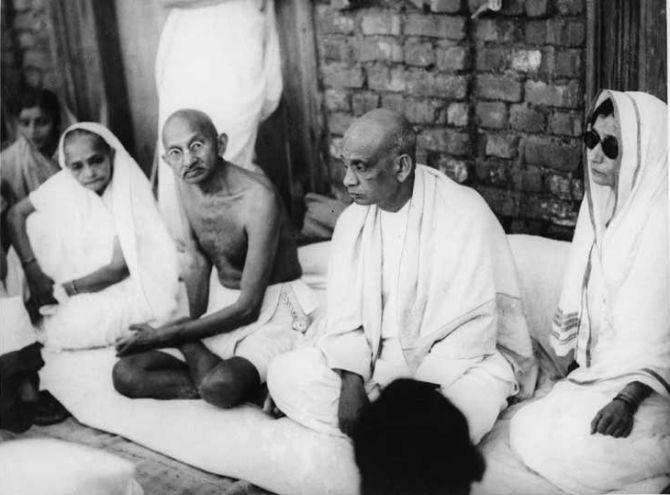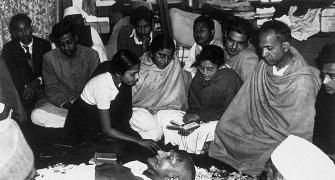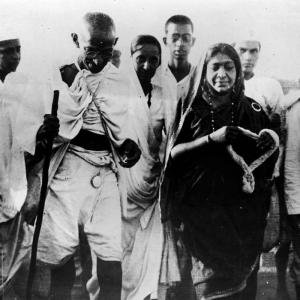Mahatma Gandhi was not against business and capitalists but had a positive approach towards business, says a new book which also seeks to look at him as an unlikely management guru and an original thinker who enriched the discourse around market capitalism.

Economist Gandhi: The Roots and the Relevance of the Political Economy of the Mahatma by retired entrepreneur Jerry Rao provides insights into a hidden facet of Gandhi's personality -- his thoughts on economics and capitalism -- and also highlights some of his views on religion, ethics, human nature, education and society.
It explains Gandhi's positive approach towards business: even though he greatly reduced his individual wants, he was against poverty and wanted every Indian to enjoy a materially comfortable life.
"Gandhi's positive approach to business, trade and wealth may have been in part a function of his caste origins. It was also reflected in many of his actions," the author writes.
"He went to South Africa as an attorney for Gujarati Muslin merchants who themselves originally belonged to the Bania caste and were relatively recent converts to Islam. In South Africa, two of his important associates, Polack and Kallenbach, were Jewish businessmen. Back in India, Gandhi was quite close to Ambalal Sarabhai, who provided funds for Gandhi's ashram in Ahmedabad," he says.
"Gandhi was also close to the Marwari Bania businessman Jamnalal Bajaj, who was sometimes referred to as Gandhi's fifth son," he writes.
According to Rao, the evolution of the caste system, trade and finance networks, and organised charity in Gandhi's home state of Gujarat, clearly influenced Gandhi in the development of his own admittedly idiosyncratic, but equally insightful and powerful views in the field of political economy.
He says Gandhi was a personality quite comfortable living with massive contradictions, articulating at different points in time widely divergent opinions.
"Hence a strong case can be made that Gandhi cannot only be used to bolster ascetic anti-consumerist movements, but also be used by those who make their living exploring the challenges of contemporary market-based systems," he writes in the book, published by Penguin Random House.
The author is also of the opinion that all data-driven firms could help themselves by reading Gandhi and trying to see how they can position themselves away from ownership and in the paradigm of trusteeship.
"This may end up being both a moral and a practical imperative. Once more the Mahatma turns out to have contemporary relevance," he says.
Gandhi's success in politics, Rao writes, was almost entirely dependent on his ability to literally create a dedicated cadre of disciplined and trained followers.
It was with this admittedly non-violent 'human capital' that he confronted the economic, military and administrative power of the British Empire, he says.
Rao hopes that in the years to come, references to Gandhi will exponentially increase in the literature on economics and management and not remain confined to the cloister of 'Gandhian Studies'.
"When Gandhi goes beyond stakeholder analysis and corporate social responsibility studies and starts cropping up in papers on identity economics, behavioural economics and public policy, we can make the claim that economist Gandhi has arrived," he writes.
Rajmohan Gandhi, who has written the foreword to the book, says, "One of the most charming things about Gandhi is that he allows writers -- encourages them, makes it easy for them -- to write freely about him. If only other famous figures had this quality!"
Photograph: Photodivision










